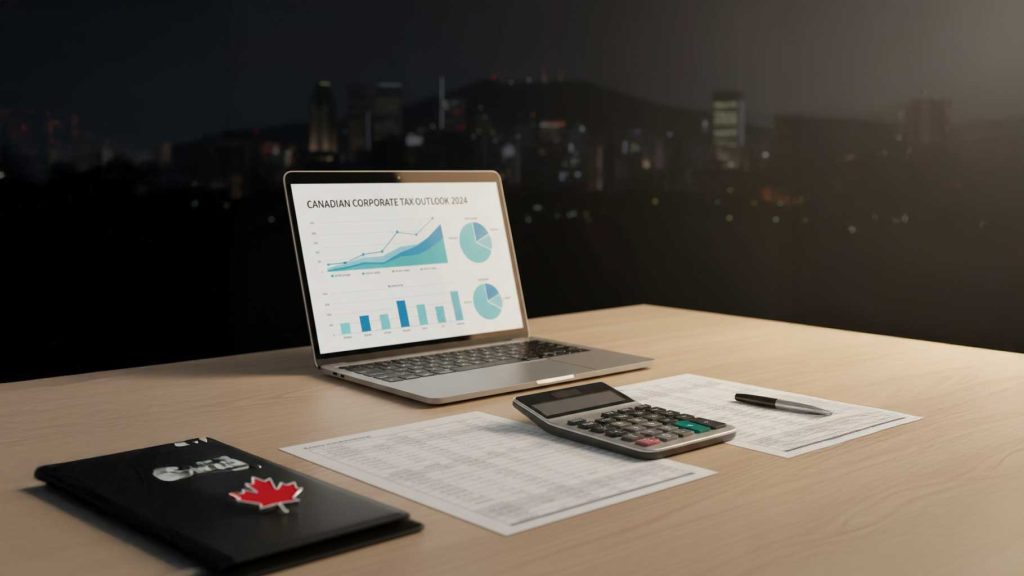Filing your Canadian taxes can feel overwhelming, especially with all the slips, receipts, and rules to keep track of. Whether you’re a salaried employee, a self-employed professional, a newcomer, or an expat, knowing what you need ahead of time will save you stress and reduce costly mistakes. At Accounting Montreal, we’ve created this step-by-step guide to help you prepare and to show you where expert help makes all the difference.
1. Start with Personal Information
The foundation of your tax return
Before you even open tax software, you’ll need:
- Social Insurance Number (SIN)
- Full legal name, date of birth, and current address
- Marital status and spouse’s/common-law partner’s income
- Information on dependents (names, birth dates, net income)
Tip from Accounting Montreal: If you recently changed your marital status or moved provinces, let CRA know before filing. This ensures you receive the correct benefits and credits.
2. Gather Your Income Slips
Every source of income matters
Here are the most common slips you may receive:
- T4 – Employment income
- T4E – Employment Insurance
- T4A – Pensions, scholarships, bursaries, retirement income
- T3, T5, T5008 – Investments, dividends, capital gains
- Rental income statements – If you rent out property
- Foreign income – Records of earnings abroad
If you’re self-employed, keep detailed invoices, bank records, and receipts instead of slips.
3. Collect Receipts for Deductions & Credits
Your chance to reduce taxes owing
Some of the most common include:
- RRSP contributions
- Medical expenses
- Childcare receipts
- Tuition and education credits
- Charitable donations
- Union/professional dues
- Business or rental expenses (if applicable)
Tip from Accounting Montreal: Don’t overlook digital receipts. CRA accepts electronic copies as long as they are legible.
4. CRA Documentation You’ll Need
Connecting this year to last year
- Last year’s Notice of Assessment (NOA): Shows your carry-forwards (unused tuition or RRSP room).
- Last year’s tax return: Helpful for comparison and consistency.
- Installment payment records: If you made advance payments toward your tax bill.
5. Special Situations to Consider
Because not all taxpayers are the same
- Students: Tuition tax credits, scholarships (T2202, T4A).
- Newcomers to Canada: Residency status, global income, eligibility for newcomer tax benefits.
- Expats and Non-Residents: Foreign income reporting, T1135 for foreign assets.
- Self-Employed Individuals: Expense tracking, GST/HST obligations.
- Retirees: Pension income splitting, OAS/CPP slips.
Tip from Accounting Montreal: These categories often come with unique filing rules; professional help is especially valuable here.
6. Choose Your Filing Method
Paper vs. Digital vs. Professional Support
- NETFILE-certified software: Most Canadians file online. You keep your receipts but don’t submit them.
- Paper filing: Requires mailing slips and receipts.
- EFILE (through an accountant): Fast, accurate, and stress-free, your accountant files directly with CRA.
7. Deadlines You Can’t Miss
- April 30: Filing and payment deadline for most individuals.
- June 15: Filing deadline for self-employed (payment still due April 30).
Tip from Accounting Montreal: If April 30 falls on a weekend, the CRA usually extends the deadline to the next business day.
8. Quick Tax Checklist
| Category | What to Prepare |
|---|---|
| Personal Info | SIN, spouse/dependent info, address |
| Income Slips | T4, T4A, T3, T5, T5008, rental & foreign income |
| Receipts for Credits | RRSP, medical, tuition, childcare, donations, business/rental expenses |
| CRA Documents | Last year’s NOA, previous tax return, installment records |
| Special Situations | Student slips, expat records, newcomer residency info |
| Filing Details | Last year’s NOA, previous tax return, and installment records |
| Deadlines | April 30 (most people), June 15 (self-employed filing) |
9. How Accounting Montreal Can Help
Tax season doesn’t have to be stressful. At Accounting Montreal, we handle:
- Personal tax return preparation
- Small business and corporate tax filing
- Expat and non-resident tax compliance
- Tax planning to minimize liability year-round
We’ll make sure your tax return is accurate, maximized for deductions, and filed on time—so you can focus on what matters most.
Reference
Ready to get your taxes filed stress-free? Contact Accounting Montreal today and let our experts handle it for you.







